A 3,000-year-old statue of Pharaoh Ramses II has been found in Cairo
Categories: History
By Pictolic https://pictolic.com/article/a-3000-year-old-statue-of-pharaoh-ramses-ii-has-been-found-in-cairo.htmlA group of archaeologists from Egypt and Germany have discovered fragments of a statue in Cairo that supposedly depicts Pharaoh Ramses II, who ruled Egypt more than 3,000 years ago. The discovery was announced by the head of the archaeological mission Ayman Ashmavi. According to the head of the Egyptian Ministry of Antiquities, Khaled al-Anani, this is "one of the most significant discoveries in the history of the country."
(30 photos in total)
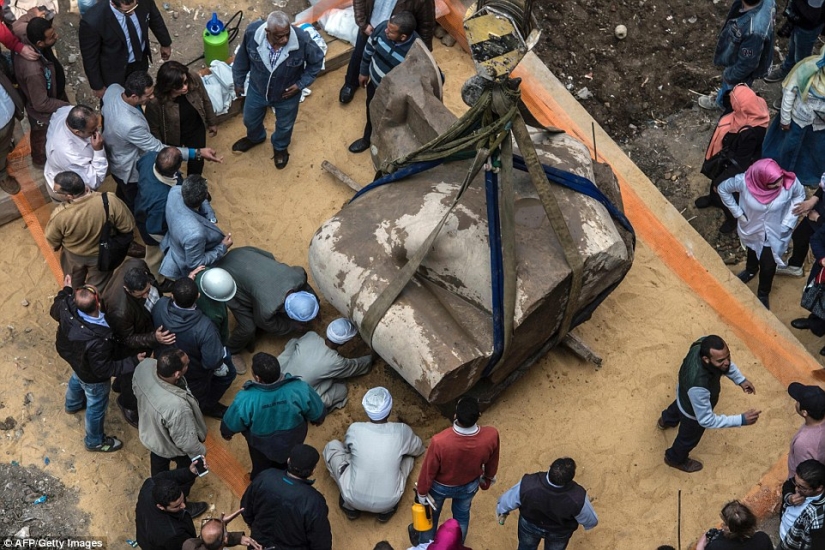 Source: Daily Mail
Source: Daily Mail
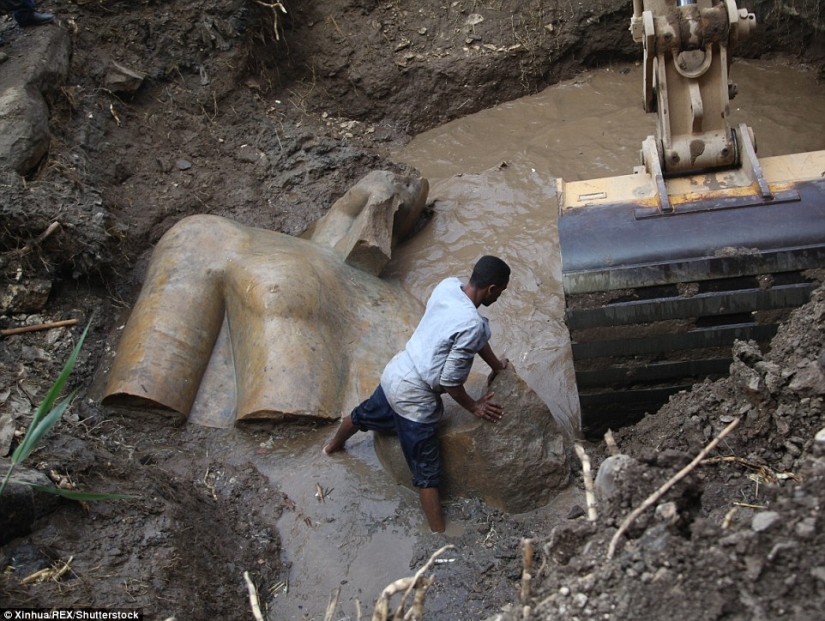
The statue was submerged in the groundwater of Cairo, and it was raised in parts. The length of the fragment is 8 meters, and it weighs 4 tons. The statue is made of quartzite, a solid rock consisting mainly of quartz.
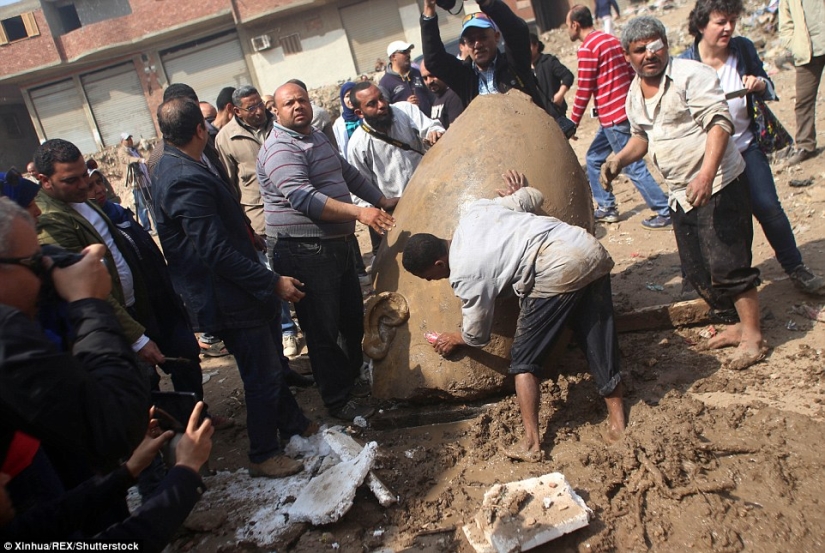
The statue was found in the working-class quarter of Mataraya, near the ruins of Ramses' palace in the eastern part of Cairo, where the ancient city of Heliopolis used to be located.

Egyptian Minister of Antiquities Khaled al-Anani with workers next to the head of the statue.
Egyptian Minister of Antiquities Khaled Al-Anani
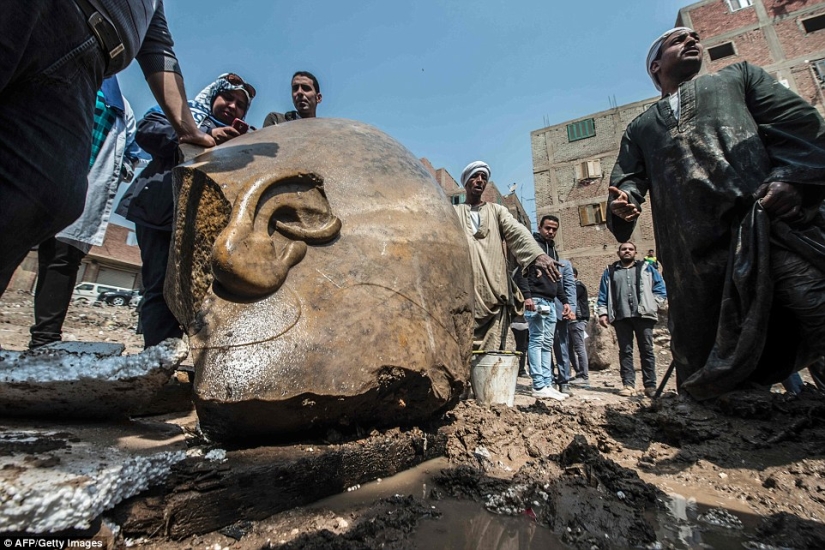
Fragments of the statue were removed from the water and mud using a bulldozer.
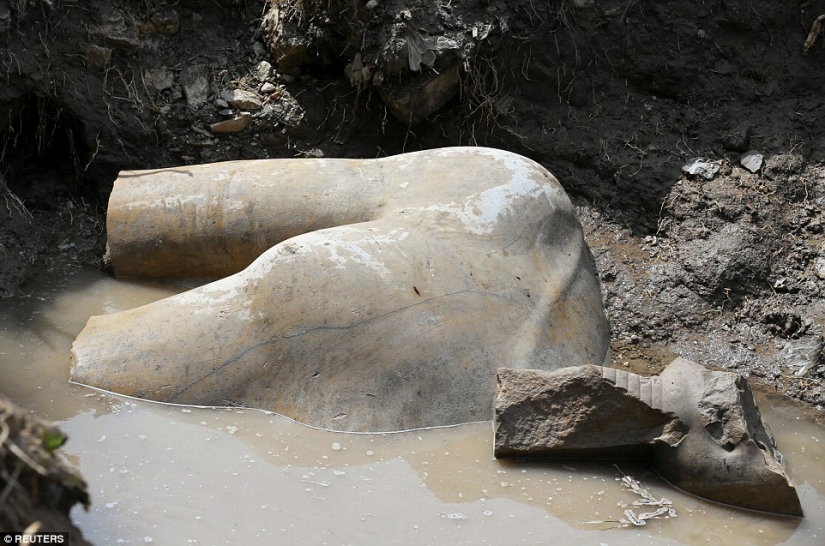
Part of the torso before it was removed from the water.
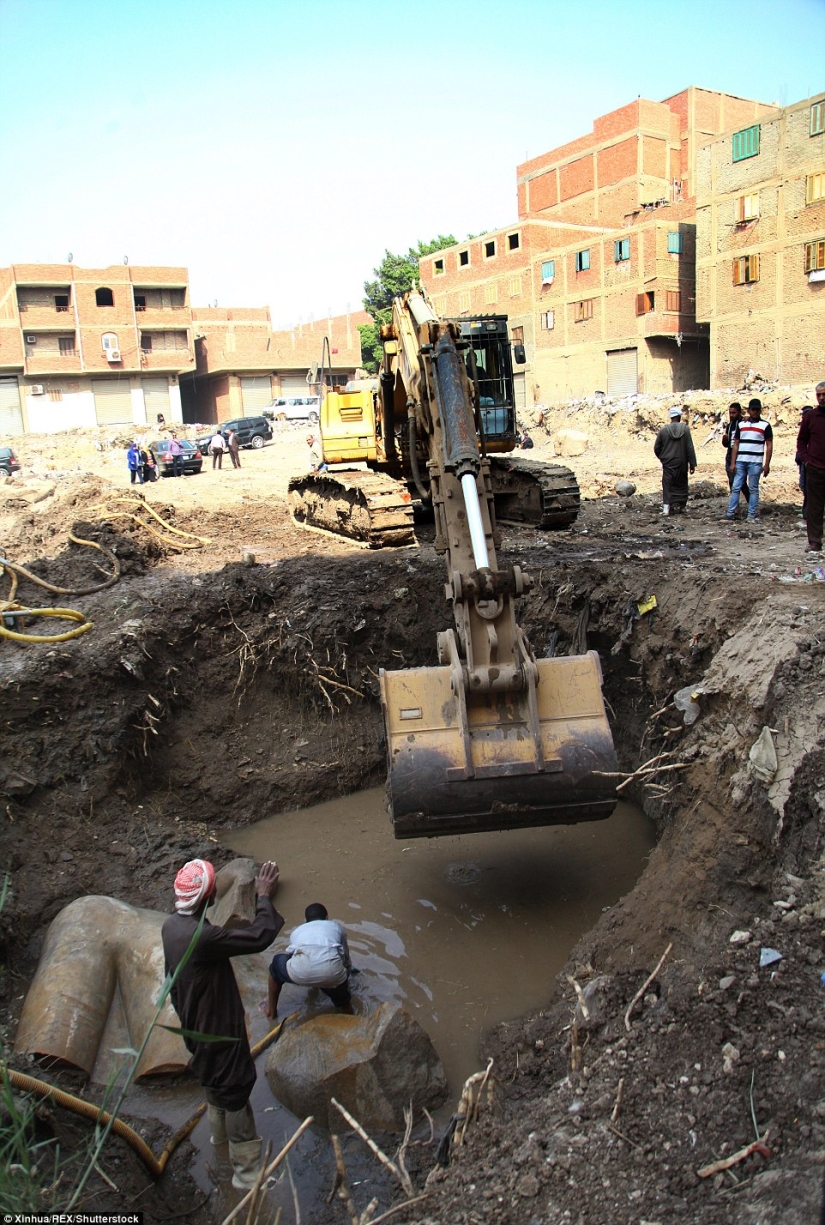
According to archaeologists, the monument could decorate the entrance to the palace of Ramses.
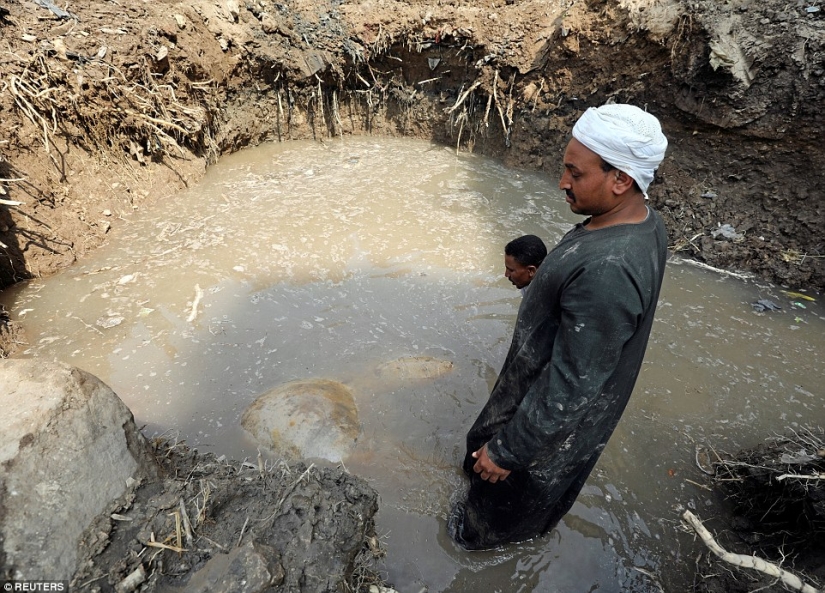
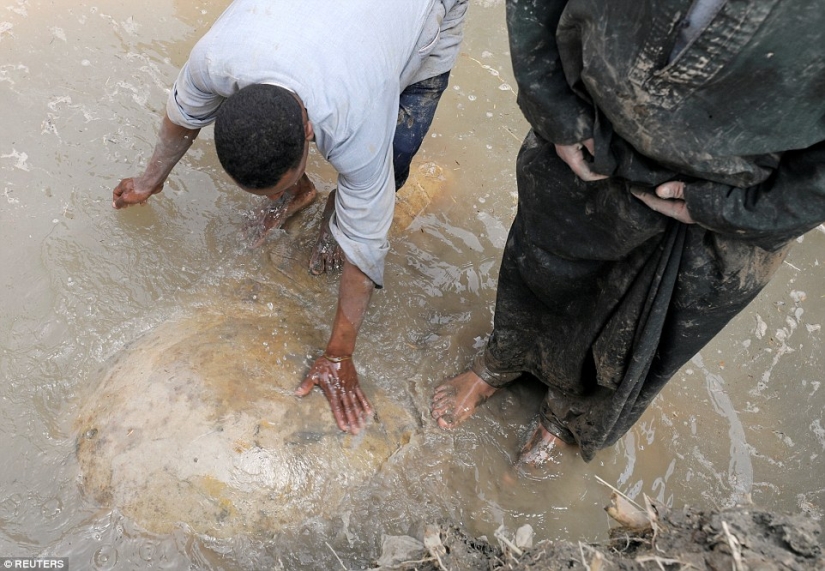
The discovery may favorably affect tourism in Egypt, which suffered after the revolution: the number of tourists fell from 14.7 million in 2010 to 9.8 million in 2011.
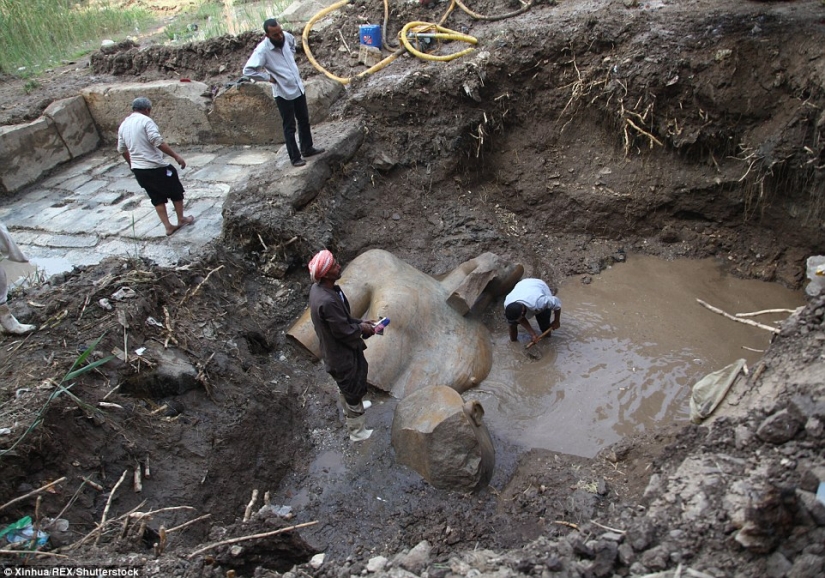
If the restoration is successful and it turns out that the statue really depicts Ramses II, then it will be installed at the entrance to the Great Egyptian Museum, which will open after reconstruction in 2018.
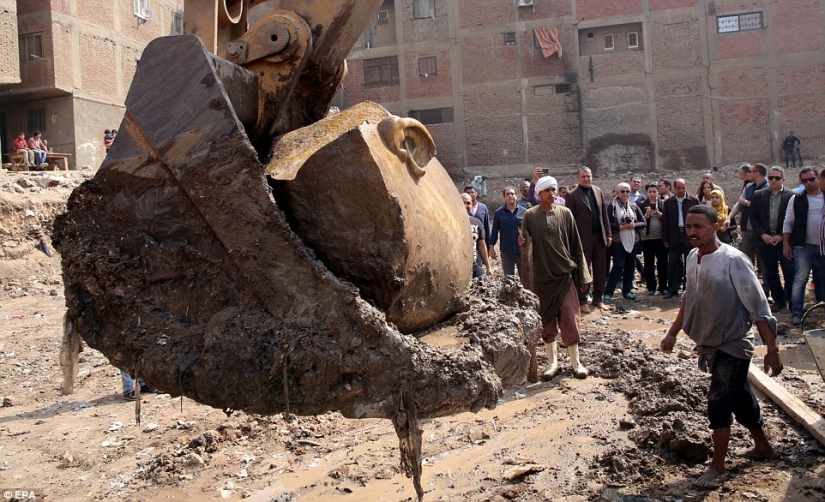
Parts of the statue are lifted out of the water using a crane. Now experts will try to extract the remaining parts of the statue to restore it.
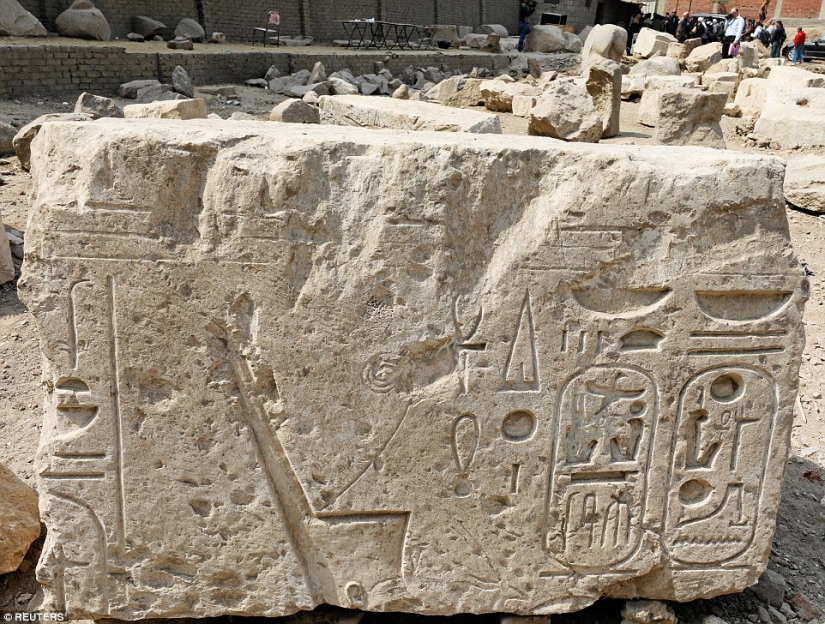
In addition to the monument to the Pharaoh, archaeologists have found an ancient Egyptian obelisk, which was part of the temple.
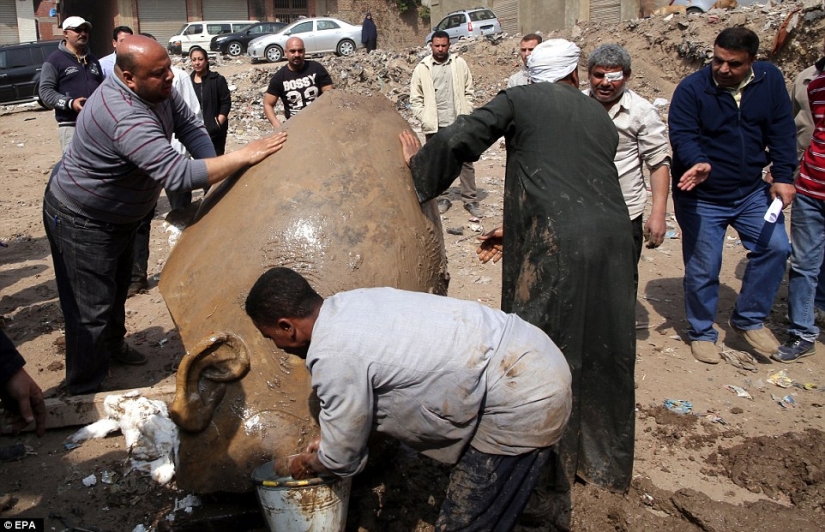
It is believed that Ramses built more temples and gave birth to more children during his 67 years of rule than any other pharaoh.
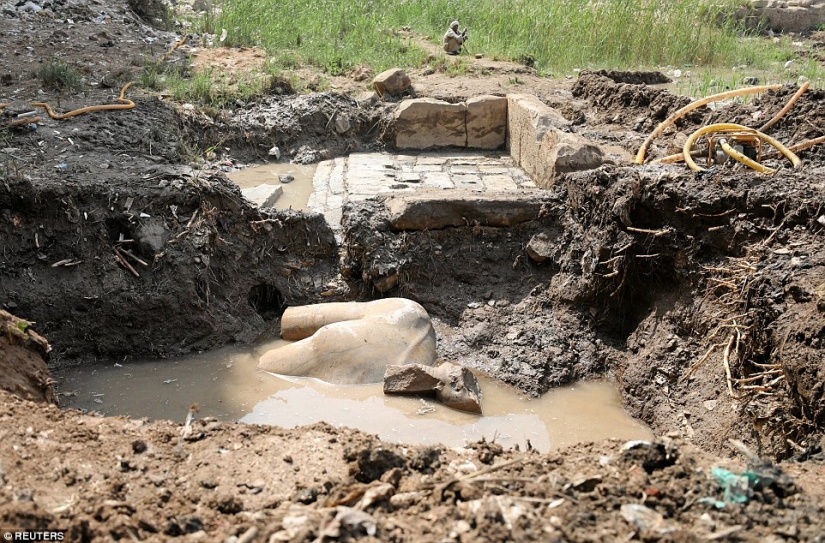
The Temple of the sun in Heliopolis was one of the largest in ancient Egypt — almost twice the size of the Karnak temple in Luxor. But during the Greco-Roman civilization it was destroyed. Many obelisks were transported to Alexandria or to Europe, and the remains of the building were looted as they were built in Cairo.
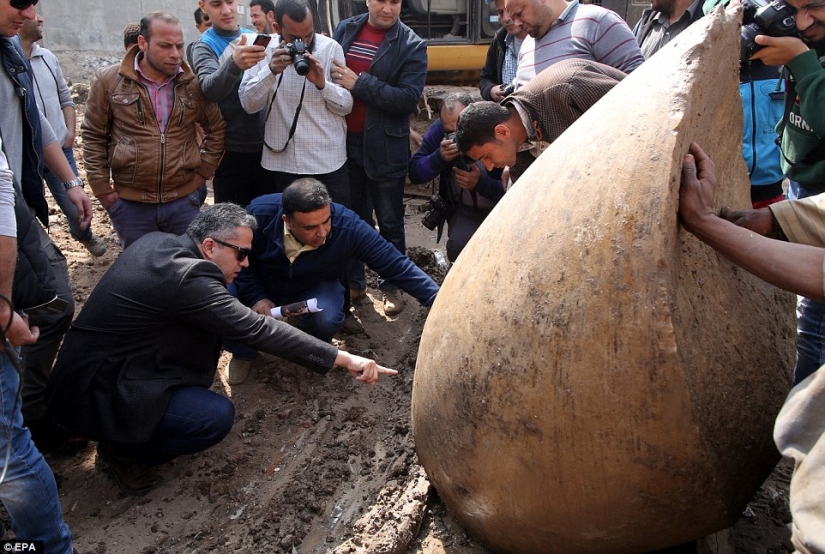
Squatting on the left is the Egyptian Minister of Antiquities.
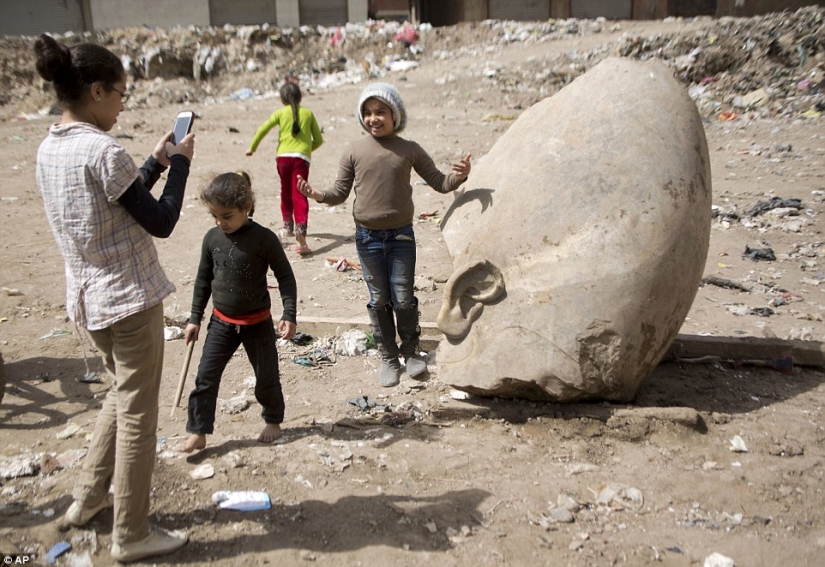
The archaeologists' discovery excited the locals: many gathered to look at the works and pose for photos against the background of the statue.
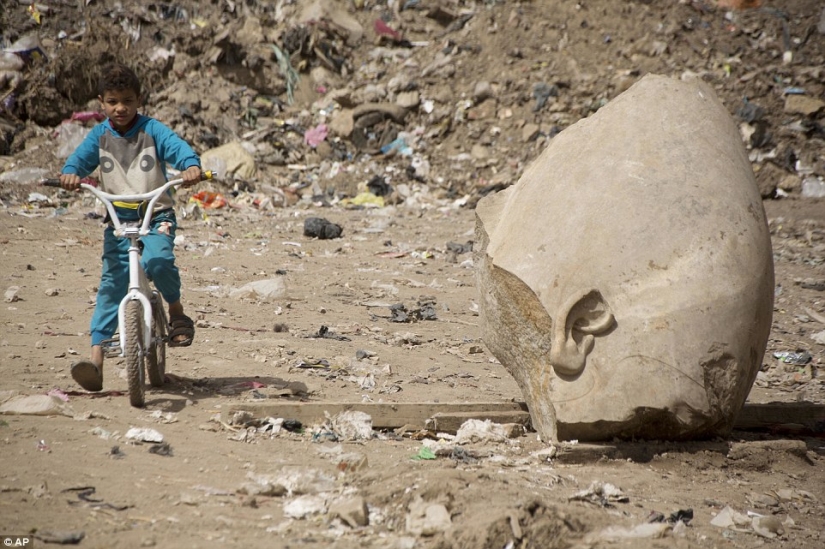
Impressive statues of the Pharaoh can also be seen in Luxor and in Abu Simbel, near Sudan.
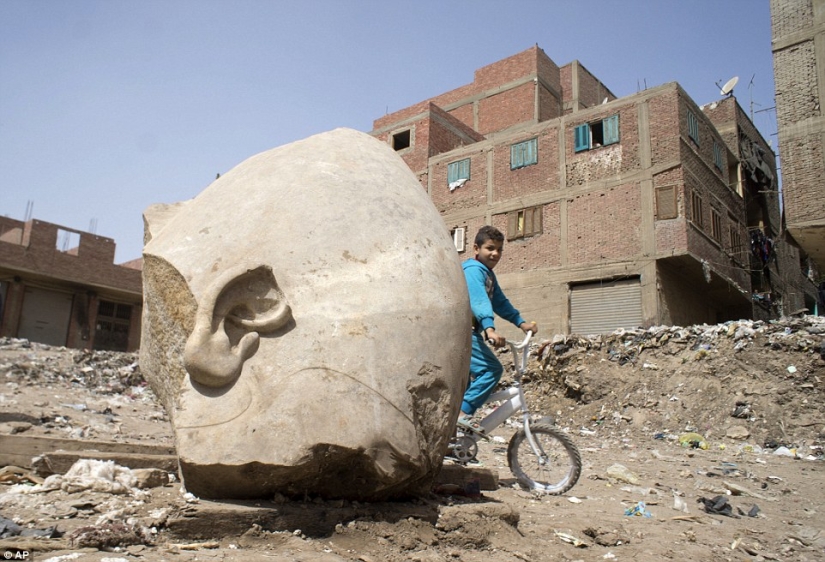
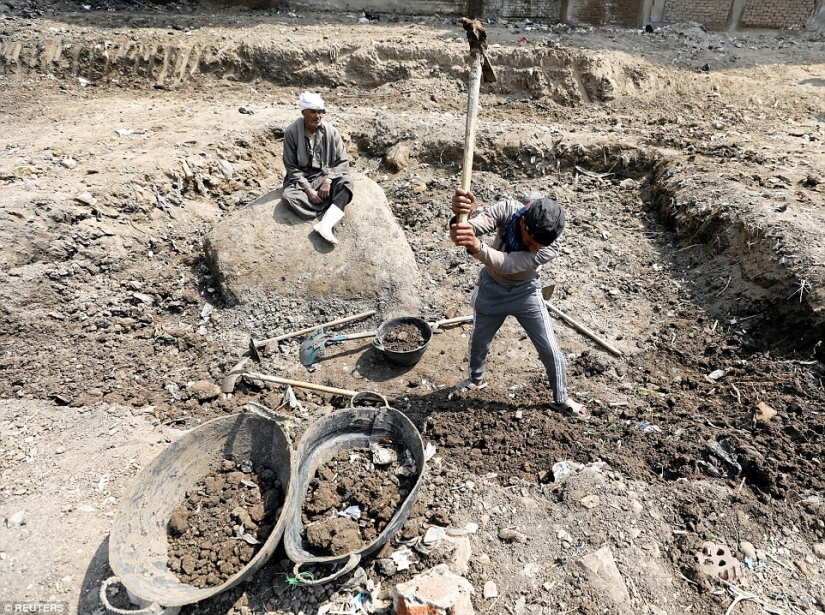
According to the head of the German team of archaeologists, Dietrich Rae, the ancient Egyptians believed that Heliopolis is the place where the sun god Ra lives.
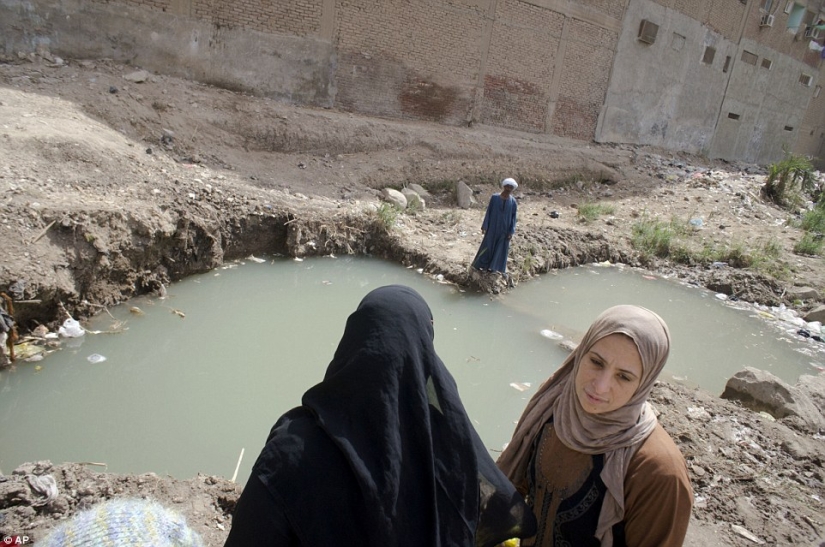
The excavation site. Egyptologist Khaled Nabil Osman called the statue an "impressive find" and suggested that there would be other ancient monuments on this territory.
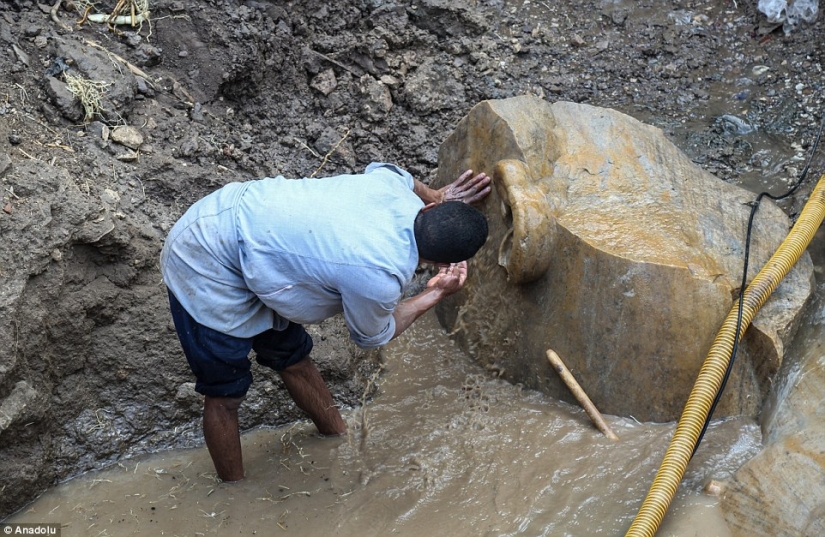
He also said that the monument is made in the same style in which Ramses was usually depicted, and this is probably what he is.
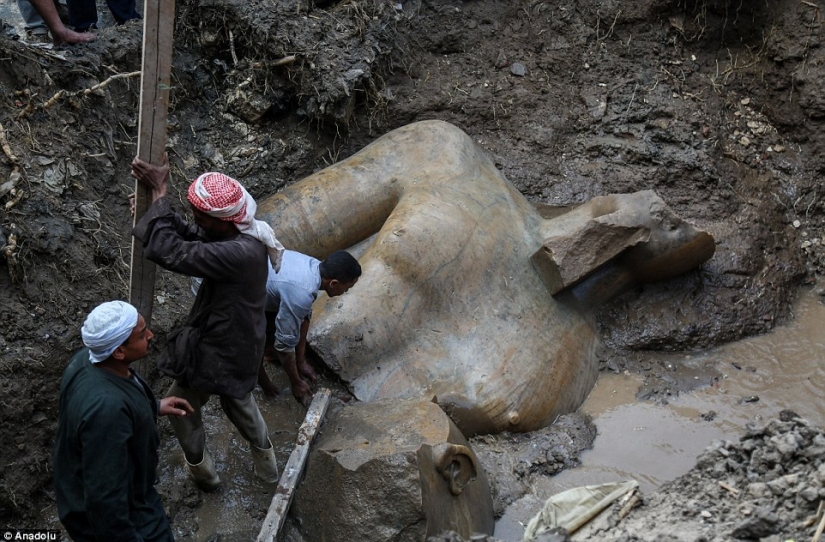
In the same area, an 80-meter fragment of another statue depicting the Pharaoh of the XIX dynasty Seti II, the grandson of Ramses II, was discovered. This life-size statue has been preserved much better than its giant "grandfather".
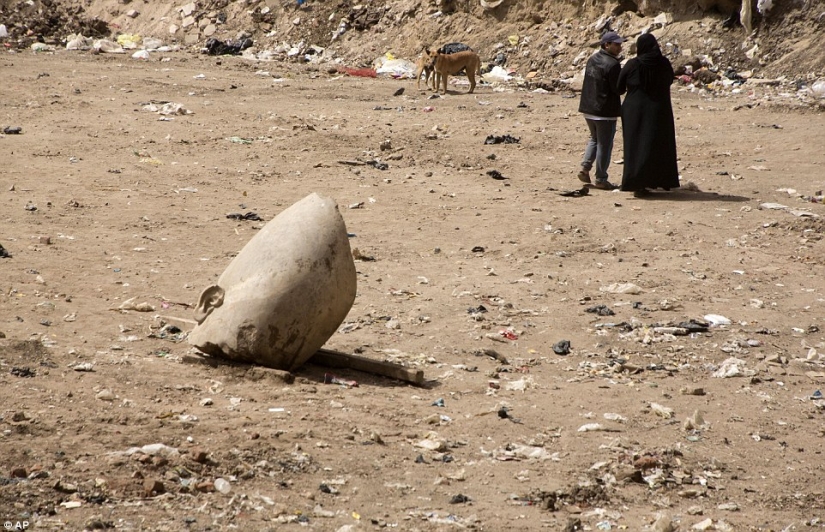
This discovery was made by the joint efforts of the Ministry of Antiquities of Egypt and scientists from the University of Leipzig.
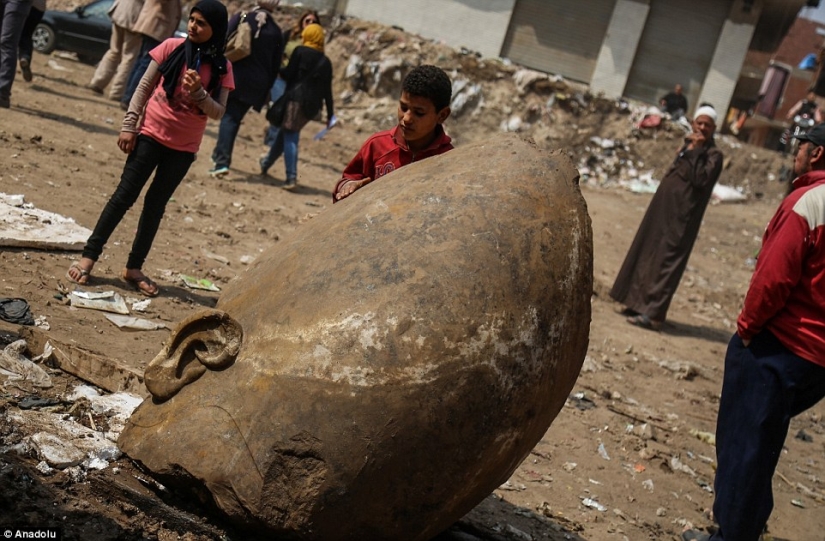
Now there are residential buildings on the territory of the ancient city.
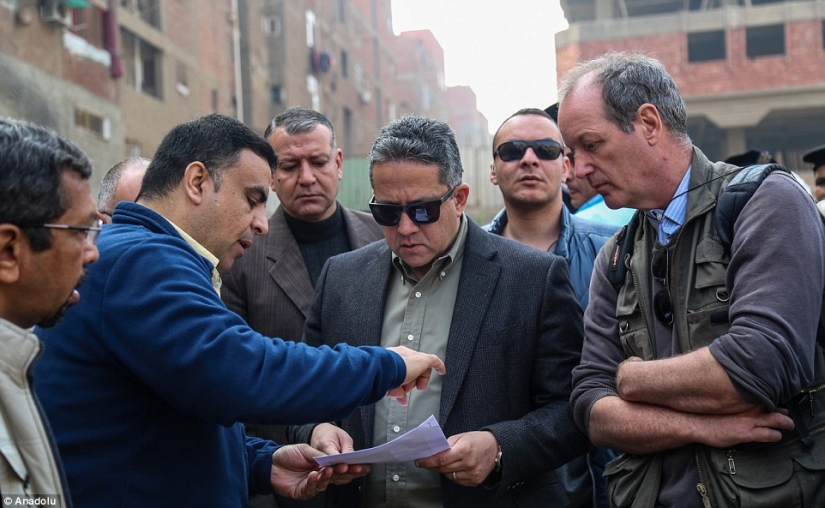
Khaled al-Anani (center) and Dietrich Rae (right) at the opening site in Mataraya.
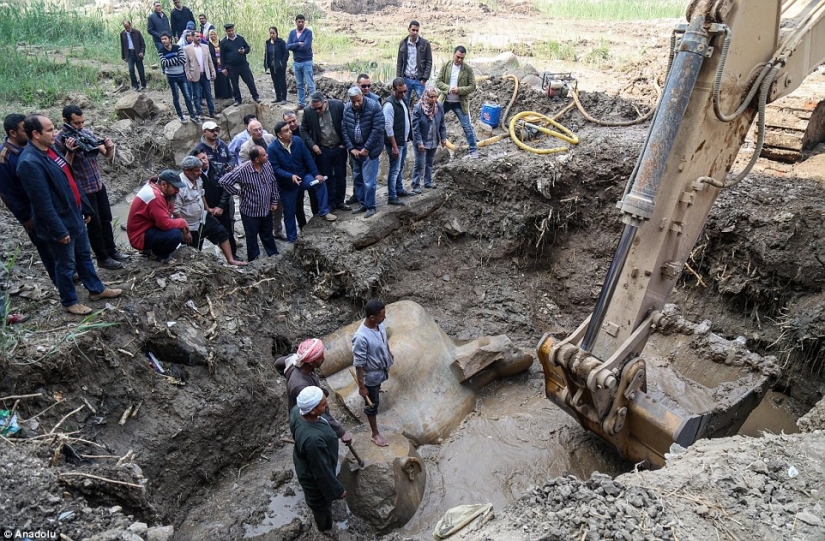
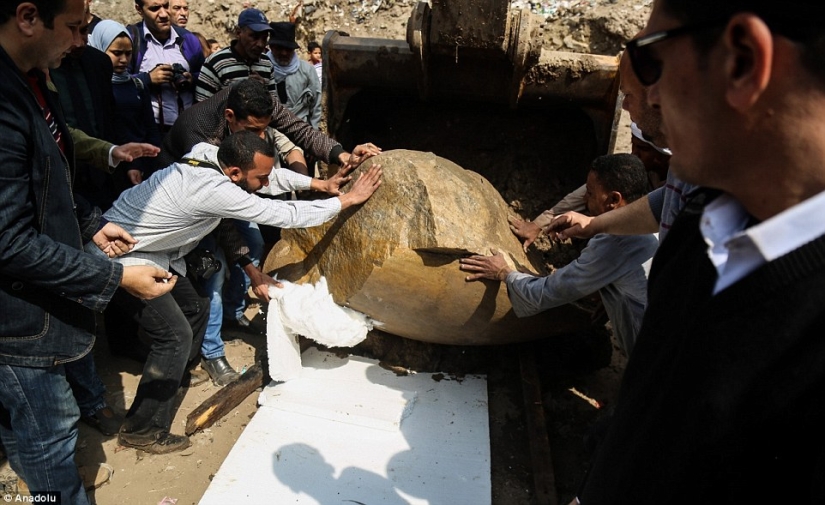
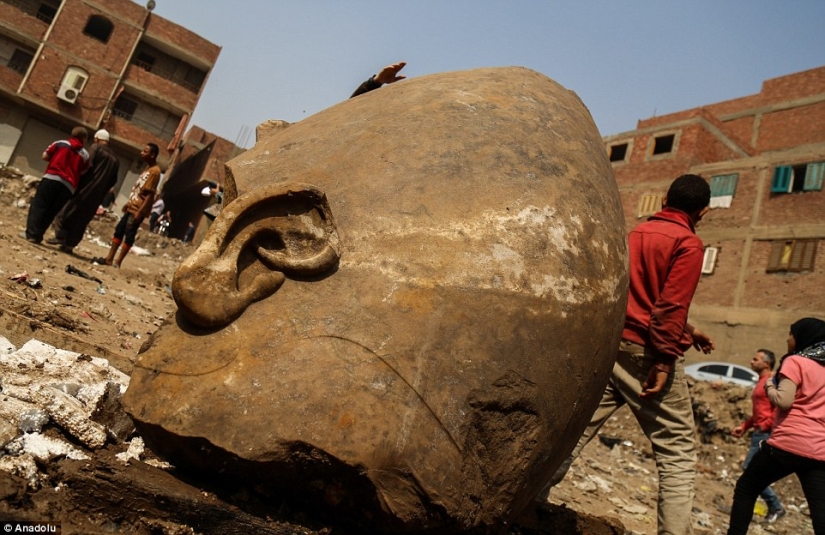
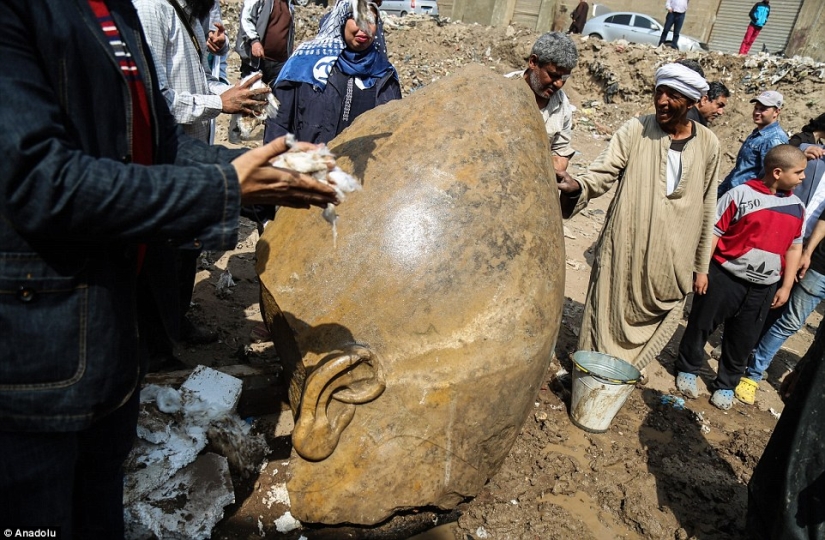
Ramses II was the third pharaoh of the XIX dynasty, who ruled ancient Egypt from 1279 to 1213 BC. He is considered one of the greatest and most revered Egyptian pharaohs.
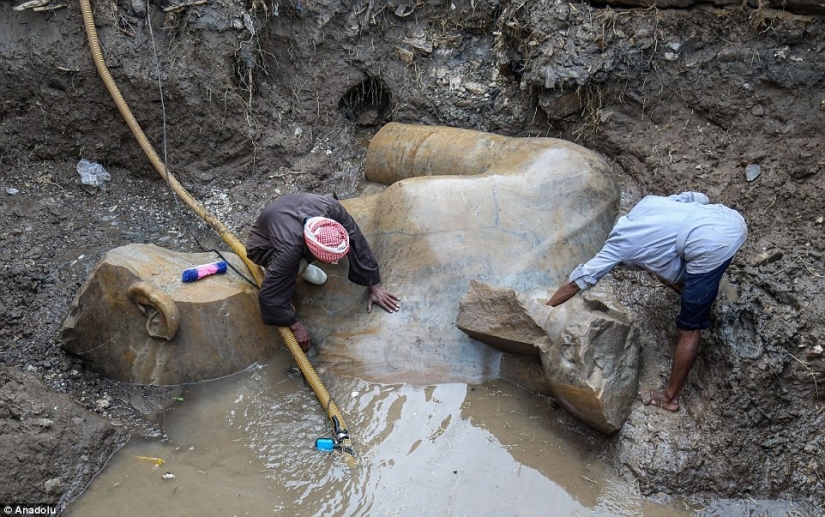
Thanks to successful military campaigns in Syria and Nubia (the northern part of modern Sudan), the territory of Ancient Egypt was significantly expanded during the reign of Ramses II. It was he who founded the city of Heliopolis, which later became Cairo.
Keywords: Archeology | Egypt | Cairo | Finds | Pharaohs
Post News ArticleRecent articles

It's high time to admit that this whole hipster idea has gone too far. The concept has become so popular that even restaurants have ...

There is a perception that people only use 10% of their brain potential. But the heroes of our review, apparently, found a way to ...
Related articles

In November 69 BC, she was born Cleopatra, the last Queen of Egypt from the Macedonian dynasty of the Ptolemies. Cleopatra, perhaps ...

The inhabitants of ancient Egypt treated many animals with great respect, but cats have always been especially important to them. ...

In different countries, kissing is treated differently. Somewhere no one will pay attention to the kissing couple, and somewhere ...

New Year's is a time to surprise and delight loved ones not only with gifts but also with a unique presentation of the holiday ...